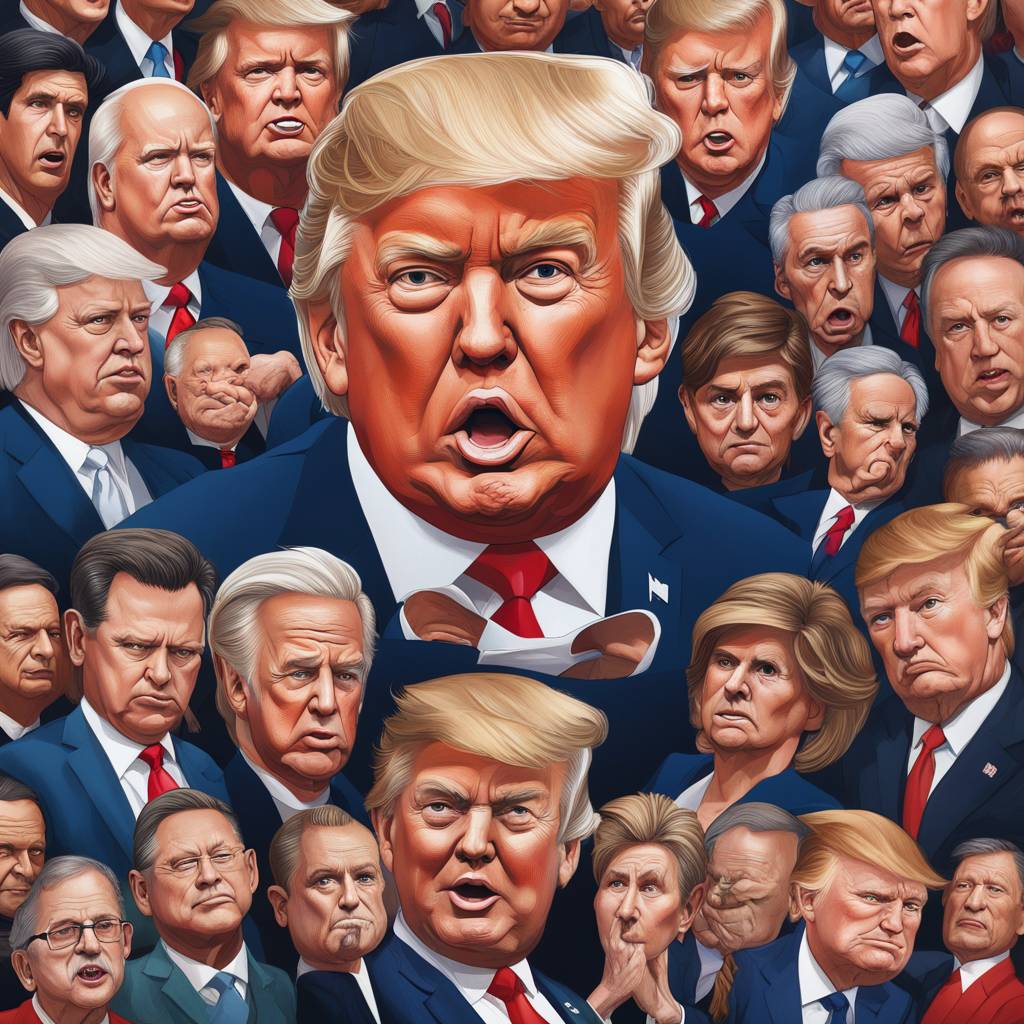As the first trial and general election approaches for Donald Trump, his strongman persona is causing an undercurrent of implied violence, creating a tense political atmosphere. Trump’s recent actions include sharing a video of a bound and gagged President Joe Biden on the back of a pickup truck, as well as verbal attacks against Judge Juan Merchan who is overseeing his New York hush money case. Despite multiple threats to judges and political opponents in the past, Trump’s behavior is particularly relevant due to the looming trials and election, with no other presumptive Republican nominee or former president acting in such a way.
The Republican Party largely ignores or excuses Trump’s conduct, as standing up to him could cost promising politicians their careers. Trump’s power within the party is so strong that his surge to the GOP nomination shows that many grassroots voters support his antics, bolstering his anti-establishment appeal. Trump and his supporters argue that his criticism of the legal system is justified due to political persecution, though this narrative ignores the gravity of the charges against Trump. Nonetheless, the persecution argument is a potent political message for Trump, subverting reality and giving him an edge over adversaries bound by facts.
In recent interviews on CNN, a GOP lawmaker and a federal judge highlighted the consequences of Trump’s behavior. Republican Rep. Mike Lawler demonstrated the contortions that more traditional GOP lawmakers must perform to remain politically viable in the age of Trump, while US District Judge Reggie Walton warned of the dangerous implications of the ex-president’s invective against judges and the courts. Walton emphasized the need for judges to carry out their duties without the threat of physical harm and criticized Trump’s attacks on the 2020 election.
Warnings from senior judges will not deter Trump’s inflammatory behavior as it works for him politically. Trump’s attacks on Judge Merchan are likely to escalate as the trial approaches, raising security risks for the judge and his family. While prosecutors seek clarification on whether the gag order applies to the judge’s family members, Trump’s rhetoric persists, undermining the judiciary and delegitimizing unfavorable verdicts. Trump’s assaults on the judiciary align with his political image as a rebel outsider fighting a system that his supporters feel disdains them, but this narrative also comes at a heavy cost to democracy.
Despite Trump’s claims of being a victim of political persecution, his attacks on the judiciary and legal system could have long-lasting consequences for the rule of law and the reputation of the legal system. Trump has exploited political statements by Democratic prosecutors, garnering political support and fostering a sense of collective injustice among his base. The danger of undermining the neutral application of the rule of law was recognized by Supreme Court Chief Justice John Roberts, emphasizing the need for an independent judiciary that is neutral and nonpartisan.
While Trump’s attacks on the judiciary energize his base and fuel his primary campaign, they also pose political risks ahead of the general election. Biden’s campaign has seized on Trump’s behavior to portray him as an existential threat to democracy and the rule of law, unfit to return to office. Senior Republicans are often unwilling to rebuke Trump, demonstrating how his rhetoric overshadows the party and political discourse. Ultimately, the focus of the campaign should be on issues facing the American people, but Trump’s behavior may dictate the outcome of the election and potentially lead to a tumultuous presidency if he wins.













